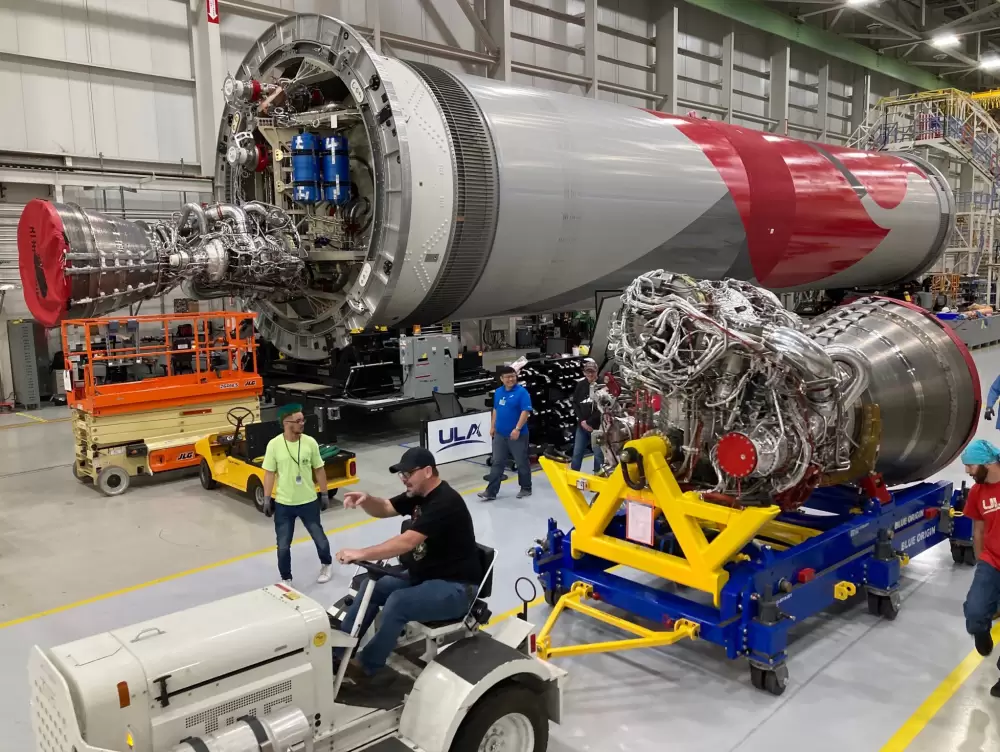The defense industry is a cornerstone of Alabama’s economy, and the state is renowned for its significant contributions to national security. The state hosts a variety of key resources and activities, particularly in the areas of missile defense, missile and rocket production, and cybersecurity.
With an estimated annual economic impact of $23.5 billion, Alabama’s defense sector employs tens of thousands of workers and attracts over $14 billion in defense spending each year.
Alabama’s focus on advanced missile defense systems and cybersecurity underscores its importance to U.S. defense strategy and its growing reputation as a leader in these critical sectors.
Huntsville’s Redstone Arsenal stands as one of the most significant military installations in the United States, playing a pivotal role in national defense, space exploration and advanced research. Its impact spans across multiple domains, including missile defense, aviation, space and technology development.
The contributions of Redstone Arsenal and other Alabama installations help to ensure the security and technological edge of the United States in an increasingly complex global security environment.
“From cutting-edge missile systems developed in Huntsville to next-generation warships built in Mobile, our state is at the forefront of advancing U.S. defense capabilities,” said Ellen McNair, Secretary of the Alabama Department of Commerce.
“These innovations, combined with the exceptional talent and dedication of our workforce, are solidifying Alabama’s role as a leader in aerospace, defense, and cybersecurity, ensuring a stronger, safer future for our nation,” she added.
Consider some of the key developments in Alabama’s defense sector that are shaping the future of the U.S. and contributing to national security.
No. 1: Revolutionizing security
A critical hub for missile defense, Redstone Arsenal houses the U.S. Army’s Space and Missile Defense Command (SMDC) and the Missile Defense Agency (MDA). These organizations focus on research, development, and deployment of advanced missile defense systems.
Companies such as Boeing, Lockheed Martin, and Raytheon have a strong presence in Alabama, contributing to the development of missile defense technologies like the Ground-based Midcourse Defense (GMD) and the production of missile systems such as THAAD (Terminal High Altitude Area Defense), Javelin and the SM-3 and SM-6.
Raytheon, for example, last year launched a $115 million expansion of its missile integration facility in Huntsville as part of a project that will create 185 jobs.
Lockheed Martin has established North Alabama as its flagship location for the development of hypersonic technologies urgent to national security. In rural Courtland, the company has established a futuristic “digital factory” dedicated to advancing ultra-fast weapons.
These innovations are poised to revolutionize the industry — making Alabama a key player in the next generation of defense technologies.
No. 2: Training ‘cyber airmen’
Maxwell Air Force Base in Montgomery plays a significant role in U.S. cybersecurity education and strategy through the Air Force Cyber College, which is a part of Air University, the Air Force’s intellectual center.
The Cyber College focuses on training Air Force personnel to address the cybersecurity needs of the modern military, with a curriculum that incorporates both academic learning and practical, mission-oriented skills.
The Cyber College is heavily involved in teaching functional mission analysis to prepare “cyber Airmen” for their roles in safeguarding Air Force operations and weapon systems against cyber threats.
No. 3: Building next-gen warships
Alabama’s contributions to national security aren’t focused solely on the skies — they extend to the seas as well. Austal USA’s shipyard in Mobile has long built vessels for the U.S. Navy, notably the Littoral Combat Ship and a fast expeditionary transport.
Austal now has two significant expansions underway that showcase its evolving role in national defense. A new facility at its shipyard will focus on building submarine modules to support the U.S. Navy’s goal of delivering one Columbia-class and two Virginia-class nuclear subs annually
Together, the growth projects will create 2,000 jobs through a combined investment of $750 million.
No. 4: Unleashing innovation
Dependable, long-lasting and more powerful batteries are a critical item in the U.S. military’s supply chain requirements, and a company in Alabama is helping to prepare for the future.
IntraMicron Inc., an innovation company created in partnership with Auburn University, was awarded a $7.6 million contract last September by the Department of Defense “for the procurement of high-power battery modules in support of the Office of Naval Research.”
IntraMicron, based in Auburn, says it has developed one of the safest and most powerful lithium-ion batteries in the world — drawing interest from military agencies contemplating battlefields of the future.
In 2019, IntraMicron secured an almost $5 million contract for engineering and technical services for the prototype of a battery system to meet the U.S. Navy’s pulse power needs, according to AlaDefense.com, a publication focusing on the state’s military and defense news.
No. 5: Blasting off
United Launch Alliance’s Alabama-built rockets have long provided dependable launch services for the U.S. Department of Defense and intelligence agencies, enabling the deployment of national security satellites that are essential for communication, surveillance, navigation, and missile detection.
ULA’s Atlas V and Delta rockets have deployed critical satellites into orbit on countless missions for the U.S. government. Its next-generation Vulcan Centaur rocket is poised to meet the challenge in coming years.
ULA’s state-of-the-art manufacturing facility in Decatur, a 2.4 million-square-foot complex where its rockets are built, last year underwent a massive expansion to scale Vulcan production.
“Their recent investment of $317 million in new facilities to support the increase in the new Vulcan rocket production solidifies their presence and commitment to our community and the State of Alabama,” said Jeremy Nails, president and CEO of the Morgan County Economic Development Association.

This post was originally published on here






